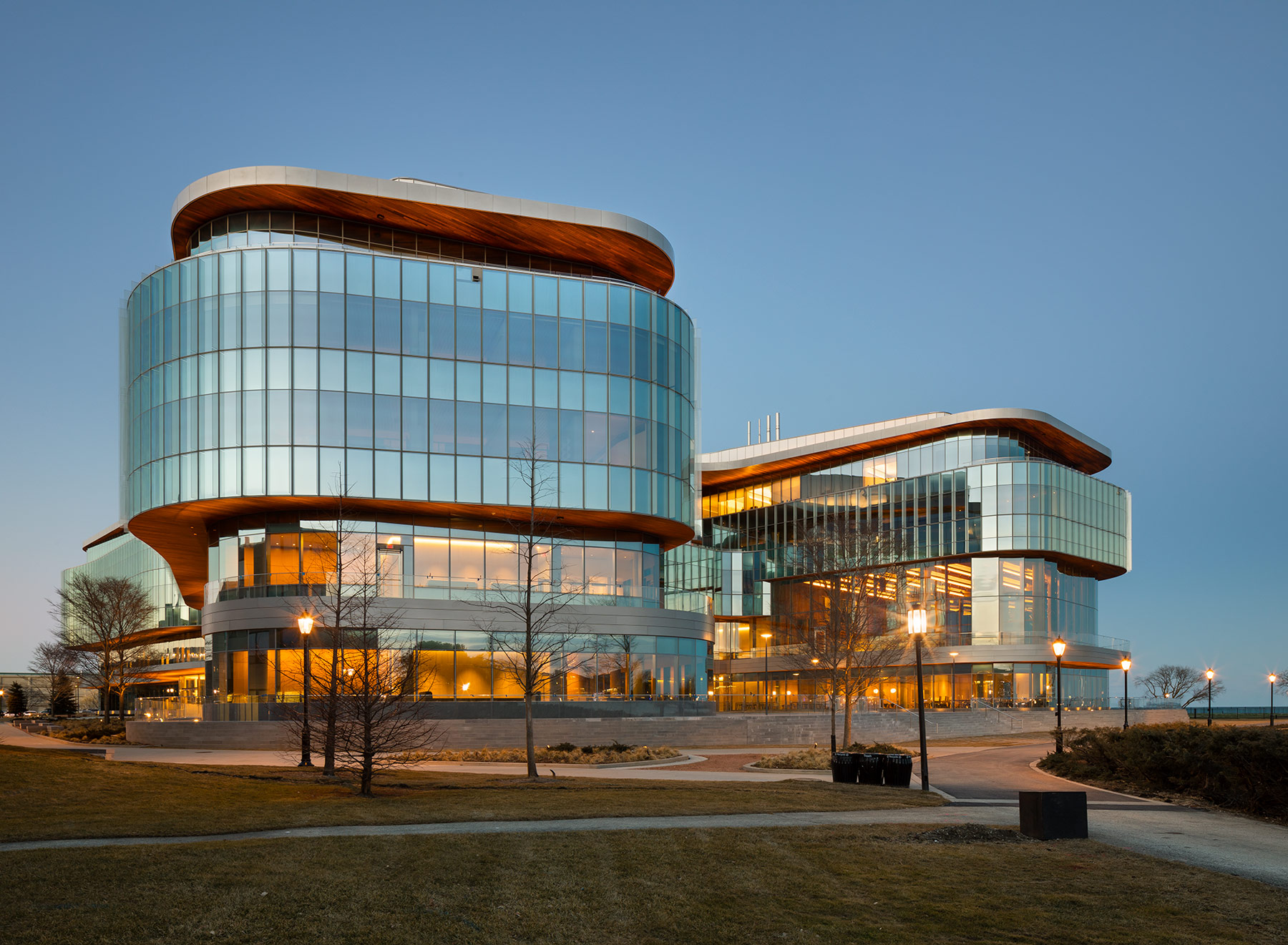Business School Experts on the Glass Ceiling, and More – Chicago News

Let’s explore some of the most interesting stories that have emerged from Chicago business schools this week.
Here’s a Better Way to Schedule Surgeries – Kellogg Insight
Northwestern Kellogg Associate Professor of Operations Chaithanya Bandi and McCombs’ Diwakar Gupta recently published new research that focuses on how hospital administrators can optimize operating room schedules “while still satisfying surgeon needs.”
According to the article, “the researchers developed an innovative algorithm to improve OR operations, minimizing the number of ORs hospitals had to keep open, while still honoring surgeon requests,” which can drive savings of anywhere from 10-25 percent in OR costs and “lead to lower healthcare costs and thus lower insurance premiums.”
Bandi explains, “In healthcare settings, these kinds of savings don’t translate immediately to consumers. But better utilization of OR capacity helps the hospital see more patients in a shorter period of time, with lower rejections or delays for surgery requests.”
Bandi hopes to apply an “algorithm similar to the OR-optimization model to help data centers improve project efficiency. “Projects like these can take hours to run and incur very large energy costs. By some estimates, as much as 12% of the world’s total energy goes toward these projects.”
You can read more from Kellogg Insight here.
The Glass Ceiling: Three Reasons Why it Still Exists and is Hurting the Economy – Chicago Booth News
In a new working paper entitled “The Glass Ceiling,” Chicago Booth Professor Marianne Bertrand outlines three factors “why the glass ceiling persists in excluding women from top-paying jobs.”
- Women with college degrees often choose to work in fields that offer lower incomes.
- Psychological differences between men and women could account for up to 10 percent of the pay gap.
- The demands for child care, housework and other life chores outside of work fall more heavily on women than on men.
She explains, “In a world where talent is distributed equally among women and men, an economy that does not fully tap into the leadership skills offered by women is necessarily inefficient. Talent is left on the table when women are not placed in leadership positions, and the economy suffers.”

Chicago Booth Professor Marianne Bertrand
You can read more from Chicago Booth News here and check out “The Glass Ceiling” here.
‘We All Lose’ in Trade War, Says Gies Business Professor – Gies College of Business News
The University of Illinois Gies College of Business blog spoke with Professor of Finance Don Fullerton to understand the potential long-term ramifications of recent trade tensions between the U.S. and China.
The U.S. recently announced 10 percent tariffs on $200 billion of Chinese goods [like] industrial machinery parts, food seasonings, and network routers, while China countered with tariffs on $60 billion worth of American meat, chemicals, and clothes, which are set to increase to 10-25 percent by the end of the year.
“There’s going to be significant costs to bear. A lot of economists were arguing strongly against a trade war because in the long run we all lose. We’ll end up paying more for all kinds of goods. We’ll pay more for domestically-produced goods because we don’t get to buy the cheap imports anymore. And the goods we do import, we’ll pay more for because of the tariffs.”
You can read the Gies College of Business News here.
Better Advice, Getting Kids To Stop Drinking Soda, and More – Chicago

Let’s explore some of the most interesting stories that have emerged from Chicago business schools this week.
A New Way to Persuade Kids to Drink More Water and Less Soda – Kellogg Insight
Northwestern University’s Kellogg School of Business recently published an article that surveyed a number of strategies that Associate Professor of Marketing Michal Maimaran and his colleagues pursued in collaboration with UNICEF to encourage children to drink more water and less soda.
Maimaran, Stanford’s Szu-chi Huang, BU Questrom’s Daniella Kupor, and the University of Amsterdam’s Andrea Weihrauch attempted to link “water consumption with different goals that kids might want to achieve” by designing four “Drink Water” posters, each with a distinct message: “Be Healthy,” “Learn Faster,” “Make Friends,” and no message.
According to the research, the only poster that spurred bottled-water sales was “Be Healthy,” which Maimaran believes is likely due to the fact that “kids are persuaded by messages that rely on a natural association between the action and goal, such as between being healthy and water.”
You can read more about the research here.
Capitalizing On Sleep-Wake Cycle Can Drastically Increase Digital Ad Profits From Social Media – Mendoza Ideas & News
Recent research from the Notre Dame University Mendoza College of Business shows that “digital content platforms can increase traffic to their websites from social media and boost digital ad profits simply by aligning their posting schedules with target audiences’ sleep-wake cycles, or circadian rhythms.”
Vamsi Kanuri, Assistant Professor of Marketing at Mendoza explains in his new research that, “Consumers engage more with posts containing high-arousal negative information, including anger, stress, anxiety or fear, in the morning than in the afternoon or evening. They engage more with ‘boosted’ (paid to advertise) posts and those requiring higher cognitive processing, such as op-eds or scientific material, in the afternoon.”
“Scheduling Content on Social Media: Theory, Evidence and Application” is due for publication in the Journal of Marketing soon. You can also find more on the research from Mendoza Ideas & News here.
Why is it Better to Give Advice Than Receive It? – Chicago Booth News

Chicago Booth Professor Ayelet Fishbach
A new study from and Penn’s Lauren Eskries-Winkler and Christopher H. Browne Distinguished Professor of Psychology and famed writer Angela Duckworth found that people tend to “benefit more from giving advice than receiving it.”
According to the study, which was recently discussed in the Chicago Booth News, “the very act of giving the advice makes the giver feel powerful and confident. When people lack motivation, receiving advice may actually be harmful … because it undermines feelings of competence.”
The authors note, “In the process of giving advice, advisers may form specific intentions and lay out concrete plans of action—both of which increase motivation and achievement.”
“We hope our findings, which illuminate the motivational power of giving, do just that: goad scientists and practitioners to consider the ways in which struggling individuals benefit from giving.”
“In Giving We Receive: A Counterintuitive Approach to Motivating Behavior” is due for publication in Psychological Science.
You can read the full article from the Chicago Booth News here.
Political Turnover, Gaming, and Venture Acceleration – Chicago News

Let’s explore some of the most interesting stories that have emerged from Chicago business schools this week.
Why Economic Crises Trigger Political Turnover in Some Countries but Not Others – Kellogg Insight
New research from Northwestern Kellogg Professor of Managerial Economics and Decisions Nancy Qian explores “how much the people of a country typically trust other people” in an attempt to understand why recessions are catalysts for political turmoil in certain countries, like Greece, and not others, like Norway.
Qian explains that trust plays a key role.
“If I’m a less trusting person, I might say something like, ‘I don’t understand the details of what our leader is doing, but most politicians are bad and they’re lazy, so it is probably his fault. It’s about how likely I am to attribute the economic problems to circumstance or luck versus to the political leadership.”
The researchers found that “economic downturns were less likely to cause political turnover in high-trust countries, like Sweden (63 percent) than in low-trust ones, like Italy (29 percent).”
Qian explains that their findings “have direct implications for how nations approach economic interactions.”
“If we think our trade decisions are going to have economic effects in those nations, we need to also consider the potential political consequences,” Qian says. You can read the rest of the research here.
Keep Them Guessing, Keep Them Gaming – Chicago Booth Blog
In a new Journal of Consumer Research study from Chicago Booth Professor Christopher Hsee and the Chinese University of Hong Kong’s Luxi Shen, it was found that “people repeat a task more for an uncertain incentive than for a certain incentive, even when the uncertain incentive is financially worse.”
According to the Chicago Booth Blog entry, “one reason uncertain incentives motivate behavior is the psychological boost consumers get in moving from the unpleasantness of uncertainty to the satisfaction of certainty resolution.”
Hsee and Shen’s research suggests that efforts to entice consumers to repeat behaviors “may be even more successful if consumers don’t know the amount of the reward in advance.”
You can read the full article here and find “The Fun and Function of Uncertainty: Uncertain Incentives Reinforce Repetition Decisions” here.
Spine Injury Inspires Mark Van den Avont to Create Better Sports Mats – Gies College of Business Blog
Following a high school spine injury that broke the T11 and T12 vertebrae during a backflip dismount, current University of Illinois mechanical engineering sophomore Mark Van den Avont founded HexNest with the goal to create safer and more cost-effective mats.
HexNest is an outgrowth of Gies’ iVenture Accelerator through which he received a $2,500 summer housing stipend and a $10,000 grant to fund “product development, buying competitors’ mats and purchasing equipment to make his mats.”
Van den Avont writes:
“iVenture has been extremely important because I was able to work on HexNest full-time over the summer and devote all my energy to it. It’s great being around other entrepreneurs as well. I’ll be at the iVenture Accelerator at 10 pm on a Tuesday night or early Sunday morning, and I’ll look to my left and right, and everybody’s here.”
You can read more about HexNest and Van den Avont’s journey here.
Government Cyberattacks, the Perception of Lies, and More – Chicago News

Let’s explore some of the most interesting stories that have emerged from Chicago business schools this week.
How Governments Can Better Defend Themselves Against Cyberattacks – Kellogg Insights
Northwestern Kellogg Managerial Economics and Decision Sciences Professor Sandeep Baliga recently co-authored new research with University of Chicago’s Ethan Bueno de Mesquita and MIT’s Alexander Wolitzky, which articulates a new theory about how victims of cyber aggression might choose to retaliate—or not—against shadowy aggressors.
Baliga explains that their model presents a theory that “cyber warfare is inherently multilateral.”
“If the standard of proof is satisfied, yeah, then you should react super aggressively. But when there’s a lot of noise, you might actually want to back off because others may exploit your policy by hiding behind misidentification. If somebody wants to trigger a war between us and China, then they have every reason to do a hack that looks like China did it.”
Baliga adds, “If nations get better at both detecting attacks and identifying their perpetrators, then cyber peace is more likely to prevail.”
You can read the full article on the future of government cyberattacks here.
New Study Finds When Telling Lies, Perception Matters – Booth News
Chicago Booth Assistant Professor Emma Levine recently co-authored new research with UCLA Anderson’s Adam Eric Greenberg and Deakin University’s Matthew Lupoli that finds that “well-intentioned lies can spark strong resentment from the person who is deceived.”
In other words, “Telling a lie in order to help or protect someone—a practice known as prosocial lying—backfires if the person being lied to perceives the lie as paternalistic,” meaning lies that require the “liar to make assumptions about whether lying is in the deceived party’s best interest.”

Photo via newschicagobooth.uchicago.edu
Levine explains the trio’s findings, which were published as part of a paper entitled “Paternalistic Lies” in Organizational Behavior and Human Decision Processes:
“We sometimes tell lies to others believing that they will help, when in reality we are acting upon a paternalistic assumption that lying is better than the truth. Our research demonstrates that in these situations, the individual on the receiving end is likely to resent deception.”
You can read more about the research here.
Faculty Focused on Workplace Wellness Continue to Steer the Discussion – Gies College of Business News
Gies College of Business Assistant Professors of Finance David Molitor and Julian Reif co-authored The Illinois Workplace Wellness Study, whose results examine the efficacy of a homegrown wellness program.
According to the website, “The study’s findings will empower employers, public health professionals, and policymakers to make more informed decisions regarding the implementation of workplace wellness programs throughout the United States.”
You can find more here.
Which Business School Students Have the Top GMAT Scores?

A strong GMAT score is essential to a stellar business school application. Though the score is universally important to admission, certain schools emphasize a high score on the test more than others. Below, we’ve laid out a list of the 10 business schools with the top GMAT scores for incoming students.
10 Highest GPA Averages in the Business School World

The role of a GPA in MBA admissions is a hotly debated topic among both admissions officers and applicants. How much does it really matter? Does a low GPA destroy your chances of getting into a top business school?
One of the most important things to keep in mind when considering how your undergraduate GPA will impact the MBA admissions process is the fact that not all GPAs are alike. Far from a standardized figure, GPA and the way it’s measured can vary from school to school- even major to major. For this reason, it can be difficult to use the GPA’s of different applicants as any accurate predictor of success.
An student’s GPA will always be an important part of the admissions process, because it helps tell admissions officers about past academic success. Still, admissions officers are well aware of the high level of variability between GPA scores. Taking this into account, most officers working in MBA admissions will always look for more to an individual’s story than just the GPA. Numbers like a GMAT/GRE can often paint a much more exact picture of future academic success than the highly variable GPA. Designed for standardization and to test individuals on the specific challenges of an MBA, a GMAT score allows admissions officials specific insight into each application.
When considering GPA, a general rule of thumb is to not ride or die by this number—whether for better or for worse. A low undergraduate GPA doesn’t necessarily spell disaster for one’s MBA ambitions, and even a perfect 4.0 can’t save an application if the other factors don’t add up.
Overall, the exact number of an undergraduate GPA may be less important than the story behind it. If your low GPA was a result of illness or another external factor while in school, personal statements on the application are a great opportunity to give context behind the numbers and help tell your story to admissions officials.
YOU MAY ALSO LIKE: The Highest Paying MBA Internships You Can Find
Nevertheless, getting a sense of the average undergraduate GPA for your prospective programs can help give provide crucial insights. Class profiles and statistics for business schools throughout the country can give prospective students a good sense of the typical student looks like in each program, and help applicants decide if they’ll be a good fit.
Below, we take a look at the top 10 MBA programs with the highest average undergrad GPA. Take a closer look at these top schools to get an idea of the average student in each program- and your potential future classmates.
10 Highest GPA Averages for MBAs
1. Stanford University Graduate School of Business
The highest GPA average for MBA students in the U.S. belongs to the class at the Stanford University Graduate School of Business. For the Class of 2019, the average undergrad GPA was 3.74. This is down slightly from the school’s 2015 average of 3.75.
2. Harvard Business School
Often jockeying for position with Stanford, HBS took the number two spot this year with an average undergrad GPA score of 3.71. Three years ago, HBS still loomed large with a 3.66 average, and it just keeps getting higher.
3. Haas School of Business – UC Berkeley
Staying on the heels of Harvard, the Haas School of Business at UC Berkeley takes a top spot today with an undergraduate GPA of 3.7. This is a slight increase from the school’s 2015 average of 3.66.

The Haas School of Business GPA average for MBA applicants rose from 3.66 to 3.7 since 2015.
4. Yale School of Management
Significantly up from its GPA average of 3.6 in 2015, the Yale School of Management today has one of the highest undergraduate GPAs in the country at an average of 3.69.
5. Booth School of Business – University of Chicago
The MBA at University of Chicago’s Booth School of Business has consistently maintained one of the top GPA averages for programs in the U.S., up from 3.59 in 2015 to 3.6 this year.
6. The Wharton School – University of Pennsylvania
The Wharton School, consistently recognized for having some of the country’s top business programs, is nothing if not consistent. With a 3.6 average for incoming students between 2012 and 2015, Wharton maintains a perfect 3.6 average GPA this year as well.
7. Kellogg School of Management – Northwestern University
Northwestern’s Kellogg School of Management is another school where consistency is key. From 2014 to today the school has remained at an undergraduate GPA average of 3.6

The average Kellogg undergraduate GPA for MBA students has stayed at 3.6 since 2014.
8. Tuck School of Business – Dartmouth College
The average GPA for incoming students at Dartmouth’s Tuck School of Business has gone up and down throughout the years, but has consistently stayed among the highest in the country- down slightly from 3.52 in 2015 to 3.51 this year.
9. Columbia University – Columbia Business School
The Columbia Business School has always received distinctions as one of the top MBA programs in the country, and their average GPA for incoming students at 3.5—which has stayed the same for more than five years—is no exception.
10. MIT – Sloan School of Management
Typically placing much higher on the list, the average Sloan School of Management at MIT has decreased in recent years, from 3.54 in 2015 to 3.49 for this year’s incoming class. The number nonetheless still remains among the highest average GPAs for MBA programs throughout the country.
